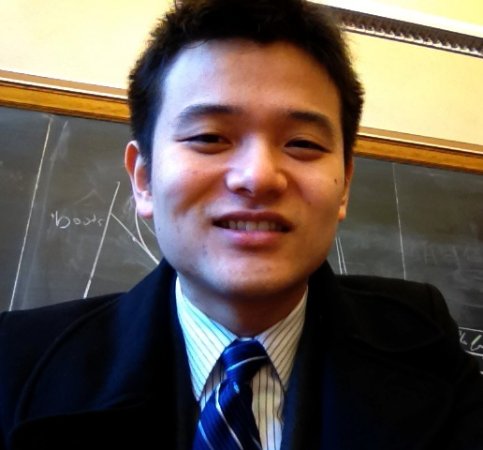Water Wars: Mr. Yang Goes to Washington
Chinese State Councilor Yang Jiechi Visits Washington as the White House Announces Proposal to Increase Military Spending

Secretary of State Rex Tillerson with State Councilor Yang Jiechi (Photo: Xinhua)
Published by The Lawfare Institute
in Cooperation With

Chinese State Councilor Yang Jiechi Visits Washington as the White House Announces Proposal to Increase Military Spending

Secretary of State Rex Tillerson with State Councilor Yang Jiechi (Photo: Xinhua)
Chinese State Councilor Yang Jiechi made an unexpected visit to the White House earlier this week. On Monday, Yang—China’s top diplomat—became the highest-ranking senior Chinese official to meet with U.S. President Donald Trump since his inauguration. Following a brief exchange of greetings with President Trump, Yang met with U.S. National Security Advisor H.R. McMaster, White House Chief Strategist Steve Bannon, and Senior Advisor to the President Jared Kushner.
On Tuesday, Yang met with Secretary of State Rex Tillerson. According to press release from the Chinese Foreign Ministry, Yang and Tillerson affirmed the importance of “deepen[ing] bilateral cooperation in various fields” while respecting “each other’s core interests and major concerns.” According to a senior U.S. administration official, the two sides also discussed arranging a meeting between President Trump and Chinese President Xi Jinping. The sides have not agreed on a date, but their first meeting is expected to occur no later than July at the G20 meeting in Hamburg. Yang also invited Tillerson to visit Beijing in the near future.
Yang’s visit is the latest overture to an administration that Chinese leaders consider to be unpredictable and hawkish. The visit follows a phone call between President Xi and President Trump last month and a meeting last week between Chinese Foreign Minister Wang Yi and Secretary of State Rex Tillerson. As noted by Xinhua, Yang’s visit also coincided with the 45th anniversary of President Nixon’s trip to China in 1972, which set the stage for normalization of relations between China and the U.S.
At the same time, details of the Trump administration’s proposal for a 10% increase in military spending emerged this week. A U.S. official familiar with the budget proposal explained that the plan would establish “a more robust [U.S.] presence in key international waterways and chokepoints” such as the South China Sea. In a press conference, Chinese Foreign Ministry Spokesperson Geng Shuang dismissed a connection between South China Sea tensions and the proposed U.S. budget increase as “hypothetical.” Shuang reiterated China’s hope that that the U.S. will “respect the efforts of China and ASEAN countries, and work together to maintain the current peaceful and stable situation in the South China Sea.”
In Other News…
Philippines
Seeking to defuse a diplomatic spat with China, Philippine President Rodrigo Duerte said that he was not sure why China’s commerce minister had postponed his planned trip to the Philippines last week. Duterte suggested that China’s government may have misunderstood his Foreign Secretary’s comments about China’s militarization of the South China Sea. Duerte said that he wanted strong relations with China, and that he did not intend to push China to comply with the Permanent Court of Arbitration’s ruling on China’s claims in the South China Sea. He further stated that the Philippines was not “duty bound to follow” United States foreign policy, particularly if it led to military conflict with China.
Expressing similar sentiments, China’s ambassador to the Philippines, Zhao Jinhua, said that the South China Sea dispute should not preclude productive discussions on other issues between the two countries. “We cannot allow the 1 percent to take the 99 percent as a hostage. And that is a lose-lose situation,” he told reporters.
Vietnam
Foreign Ministry spokesman Le Hai Binh criticized a fishing ban that China imposed in the South China Sea, stating that the ban violates Vietnamese sovereignty and international law. The ban covers waters near the Chinese-occupied Paracel Islands, which Vietnam claims as its own.
Meanwhile, the Vietnamese Navy held a flag raising ceremony for two Russian-made Project 636M (improved Kilo-class) diesel electric attack submarines at Cam Rahn naval base. The two submarines represent the last of six that Vietnam commissioned from Russia’s Admiralty Shipyards in 2009.
China
China will commence construction on an underwater observation platform in the South China Sea, according to comments made by Wang Pinxian of the Chinese Academy of Sciences at a scientific forum in Shanghai. According to a ‘sciencenet.cn’ report cited by the Global Times, the platform will be used primarily for scientific research, as well as for other purposes.
China will unveil its annual military budget next month.
Taiwan
Taiwan’s Ministry of National Defense reported to the Legislative Yuan that various measures have been taken in response to increased Chinese naval and aircraft training exercises in the East China Sea, South China Sea, East Indian Ocean and western Pacific Ocean. To improve air defense, Patriot Advanced Capability-3 (PAC-3) missiles were deployed on Taiwan’s east coast, and the air defense chain of command was restructured and streamlined. Additionally, Defense Minister Feng Shih-kuan stated that Taiwan would increase regular patrols in the South China Sea, citing “an increase in threat” from mainland China.
Indonesia
Following a summit between Australian Prime Minister Malcolm Turnbull and Indonesian President Joko Widodo, the two countries agreed to restore full military cooperation. This reverses Indonesia’s move last month to suspend all military partnerships with Canberra. In advance of his meeting with Turnbull, Widodo stated that he would discuss the prospect of joint patrols with Australia in the South China Sea, but only if doing so would not worsen Indonesia’s relationship with China.
Singapore
Indicating a possible thaw in bilateral relations, China and Singapore signed a series of agreements this week covering topics ranging from intellectual property to infrastructure investment. Meanwhile, Singaporean Prime Minister Lee Hsien Loong, in an interview with BBC, voiced a concern that worsening relations between the United States and China would “coerce” Singapore into siding with one country at the expense of relations with the other.
Analysis, Commentary, and Additional Information
The focus of this week’s commentary was strategy. In an interview with The Washington Post, former U.S. Ambassador to China Max Baucus voiced his frustrations with the Obama administration’s approach to China, and his concerns with President Trump’s overtures to Taiwan and his public questioning of the One-China policy. Baucus urged the new administration to formulate a “thoughtful, considered” strategy combining engagement with a resolve not to be “pushed around.” Other experts have suggested that the Trump administration identify and recognize China’s interest in the South China Sea by focusing on natural resources rather than sovereignty. Meanwhile, Professor Lyle Goldstein of the U.S. Naval War College highlights discussions among Chinese scholars on the need to develop a Chinese maritime strategy for the Atlantic Ocean.
Following last week’s meeting of ASEAN Foreign Ministers, the editorial board of The Bangkok Post, a major newspaper in Thailand, urged the Thai government to pursue efforts to obtain Chinese agreement on a code of conduct in the South China Sea. Meanwhile, Euan Graham of the Lowy Institute explores the reluctance of many Southeast Asian states to cooperate on freedom of navigation and overflight exercises.
Finally, East Asia Forum this week focused on the underrated story of the leadership changes that are expected during the Chinese Communist Party’s 19th National Congress later this year. Dong Dong Zhang argues that the 19th National Congress will yield important clues as to whether President Xi’s next five-year term will feature more consolidation of power or greater economic and political reform.
Water Wars is our weekly roundup of the latest news, analysis, and opinions related to ongoing tensions in the South and East China Seas. Please email Sarah Grant with breaking news, relevant documents, or corrections.



.jpg?sfvrsn=d5e57b75_5)


